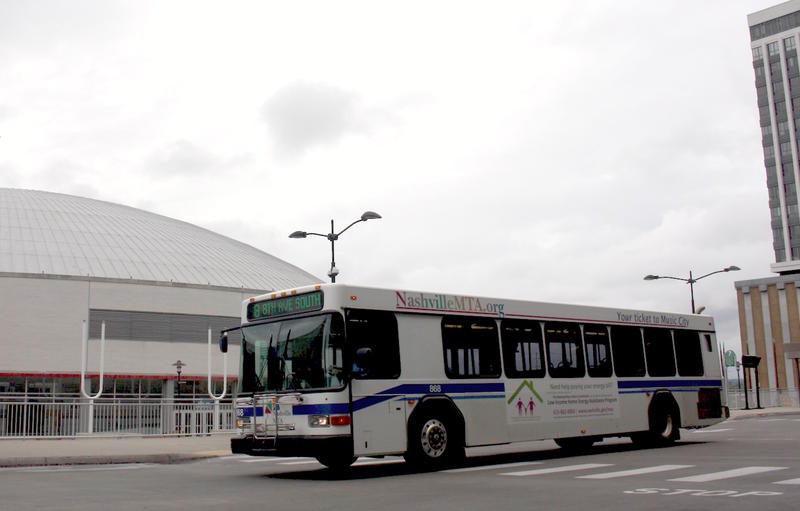
One of the easiest things to complain about in Nashville is traffic, but what to do about it is a more difficult question for the candidates for mayor.
In recent interviews, WPLN asked the candidates what their first moves would be on transportation. Many of their answers are more about easing congestion — but not necessarily through mass transit.
For example, at a recent forum, all of the candidates supported the ideas of “traffic demand management,” or TDM, which seek to reduce the number of rush hour commuters who travel alone in their cars.
Metro has initiated a TDM program. It encourages employers to shift their employee schedules away from traditional rush hours, and to move toward work-at-home technologies. It also tries to connect major downtown companies to transit and carpool options.
The candidates are also quick to mention — without much specificity — that Metro will need to work with other governments in the region, as well as the Tennessee Department of Transportation.
In small ways, the leading candidates try to differentiate their transportation agendas.
The primary talking point of candidate Carol Swain is her desire to improve 50 problematic intersections that need new or different turning lanes.
“When it comes to the buses, I don’t think we can continue to spend millions of dollars on big, empty buses that don’t take people where they need to go,” Swain said.
John Ray Clemmons said he’d like to explore rush hour lane shifts in and out of downtown on major highways. He’d also like Metro to keep control of on-street parking — but to upgrade its meters and introduce variable-rate parking costs. He said parking should cost more during busy times, and that such a system could encourage travelers to use alternative methods.
“There are many short-term, cost-effective solutions,” Clemmons said.
Swain and Clemmons both said they’d pursue a re-timing of traffic signals to improve flow. That’s despite Metro having just completed a massive re-timing of 850 signals in 2017.
Meanwhile, Councilman John Cooper puts somewhat more focus on buses. He fought hard against last year’s transit expansion plan, but said he now wants to salvage some of its ideas.
“You’re going to need better bus service. You’re going to need bus shelters. You’e going to need park-and-rides if this is going to work,” Cooper said. “All that is trivially expensive compared to last year’s $9 billion plan.”
“You need to go ahead and have it up next year,” he said.
Current Mayor David Briley has been criticized in recent weeks for not fully funding WeGo this year and the agency is about to cut some bus service. 
But at the same time, Briley says his intention is to expand transit.
“We have had plan after plan after plan, study after study after study when it comes to transit, and we’ve got to go build something,” Briley said. “So that’s why we’re working on Dickerson Road to get some transit in place before the waves of development come in.”
Mixed Views On Transit Referendum
Briley says success along one corridor will show the importance of transit, which could eventually convince voters to raise taxes to pay for the system to expand.
“Our city will ultimately be willing to have a dedicated revenue source for transit once they see how it works,” he said.
Cooper says he’d deliver a new transit plan in his first year — although he hasn’t committed to a tax increase.
Clemmons said he wants to pursue dedicated funding in his first term.
“We have to be out there working from day one on building out a larger, 21st-century transportation mass transit system,” Clemmons said. “We cannot afford to wait any longer.”
Swain say she wouldn’t hold a referendum.
None of the candidates discussed WeGo’s existing master plan — known as nMotion — which was adopted in 2016. That plan remains central to the transit agency’s yearly and long-term decisions.


